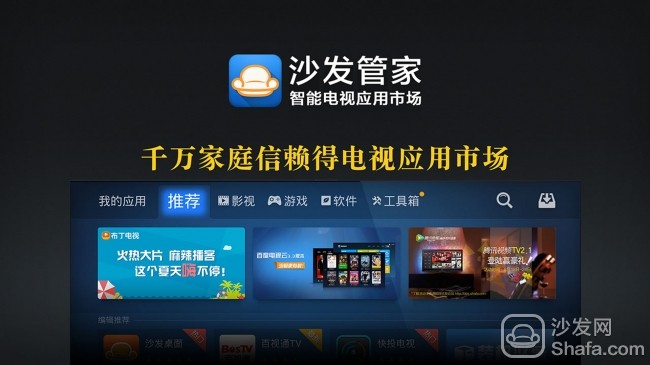
A few days ago, Intel, IBM, Qualcomm and other 60 technology companies jointly signed a letter against the Telecommunication Act Title II and sent it to the hands of the US Congress and the FCC. It is understood that the companies that signed the letter are all members of the Telecommunications Industry Association (TIA) and their focus is on whether to reclassify broadband services. Affected by this, the Telecommunication Act Title II, originally scheduled to be launched later this year, may have to be postponed until next year. So, let's take a look at what exactly is Title II, the telecommunications bill that keeps TIA members such as Intel and Qualcomm from scuttling.
Telecommunication Act Title II and Broadband Classification
The Telecommunication Act Title II is a supplement to the U.S. Congress and the FCC's Telecommunication Act of 1996. The 1996 Telecommunications Act was a set of bills that the US government imposed strict restrictions on the monopoly of Bell Corporation at that time to stimulate the development of the telecommunications industry. The Act stipulates that Bell must ensure that other telecommunication industry colleagues have free access to its network and have the same voice quality as Bell's services. However, as early as 1984, the U.S. Department of Justice split Bell Corporation in accordance with antitrust laws, splitting a new ATT company (specialized long-distance telephone service) and seven local telephone companies that inherited the name of the parent company. The 1996 telecommunications bill was extremely unfavorable to local Bell companies, resulting in their unwillingness to contribute to broadband construction and indirectly leading to the failure of the US national broadband plan.
The Telecommunications Act of 1996 classified telecommunication services into three categories: "telecommunications services," "broadcast services," and "cable television services." Broadband services should be categorized under the "telecommunication service" according to the normal classification principle and be subject to the "telecommunication service" regulations. However, the rapid development of broadband services in recent years has made it increasingly an independent business, and the description of “telecom service†in the 1996 telecommunications bill does not fully include broadband services. Telecommunications companies use this loophole to develop similar “privileged channelsâ€. The "fast track" business allows network companies to pay higher fees to telecommunications companies to ensure that their companies have high priority in network services. For example, at the beginning of this year, Netflix was forced to pay "additional fees" to US telecommunication service providers due to excessive network traffic to ensure the smooth broadcasting of the card house. In addition, Yahoo also paid high fees to its telecommunications service providers for its e-mail service to ensure that Yahoo users have a higher priority than Google's Gmail users when they use mail delivery services. Therefore, once the Telecommunication Act Title II formalizes the integration of broadband services into the “Telecom Service†category, these “extra expenses†will result in “extra income†being discouraged. Telecom service providers certainly do not want to see such situation.
What is network neutrality?
The concept of "net neutrality" can be traced back to the 1934 American Communications Act. At the time, the law stipulated that any telephone company must not obstruct the connection of a telephone to a non-user company. After the rise of the Internet, the concept of “net neutrality†was automatically extended and network service providers were not allowed to impose restrictions on data from non-users of the company, such as mail and videos. The Amendments to the US Communications Act of 1964 and the United States Telecommunications Act of 1996 have all reinforced related concepts, making it a consensus of the American community and being considered as the basic rules of action for the US communications industry. Undoubtedly, “net neutrality†has positive significance for breaking telecommunication monopolies and guaranteeing citizens’ freedom of communication. However, “net neutrality†objectively infringes on the interests of telecommunications operators, resulting in the slow development of broadband services in the United States.
However, for content providers such as Google, Netflix, and Facebook, "net neutrality" is extremely important. On the one hand, it is more reasonable and cheaper rates. On the other hand, it ensures that start-up companies such as Google and Facebook receive equal treatment at the initial stage of their businesses, and thus compete fairly with the established Internet companies. If "net neutrality" is not guaranteed, there may not be today's Google and Facebook. A neutral network can provide a fair playing platform. In addition, an all-powerful, proprietary network will not attract users to use, and such a network cannot have a healthy and sound ecosystem.
The Influence of Title II of Telecommunication Act on China
As a U.S. law, it is somewhat embarrassing to talk about its influence on China. However, in fact, China's telecommunications management methods and TV and radio laws have deeply referenced the provisions of the 1964 U.S. communications law. Even so, the impact of Title II, the telecommunications bill that focuses on "net neutrality", can be said to be almost nothing. Under the influence of some well-known mysterious force majeure, Google and Facebook, which are relatively neutral and politically weak, are still inaccessible. “Network neutrality†is merely a luxury in China. However, from the failure of China Mobile to collect "special fees" from WeChat, it can be seen that "net neutrality" as a principle may still be "partly" accepted by related departments.
In order to maintain fair competition among online companies, in the near future, the legislation of the "net neutrality" bill with "Chinese characteristics" will also be put on the agenda, but don't expect too much.

Indoor Rental Stage Event LED Screen
The LED Screen for professional indoor use has high-definition display effect. It is used for professional large-scale concerts, concert stages, various party activities, evening parties, band performances, etc. Good quality guarant with 2 year warranty, professional good after-sale service.
As Professional Manufacturer of LED Screen, we fouce on quality and provide very good price and warranty service.
Perfect well fit product for your indoor events solution, welcome to consult. Contact us to know more now!

Indoor Rental Stage Event Led Screen,Stage Events Led Display Panels,Music Concerts Stage Led Screen,Indoor Stage Rental
Guangzhou Cheng Wen Photoelectric Technology Co., Ltd. , https://www.cwdisplay.com
